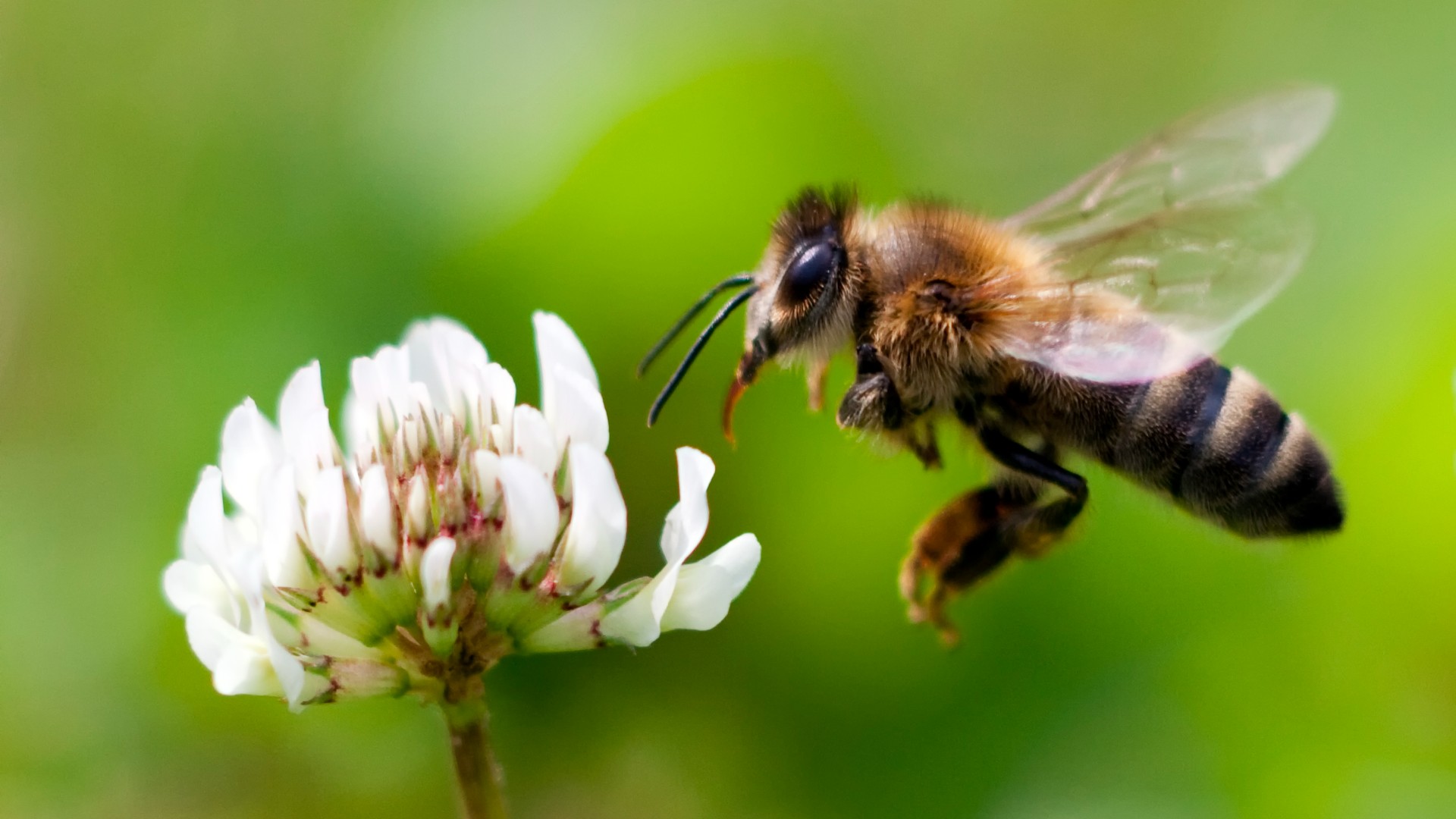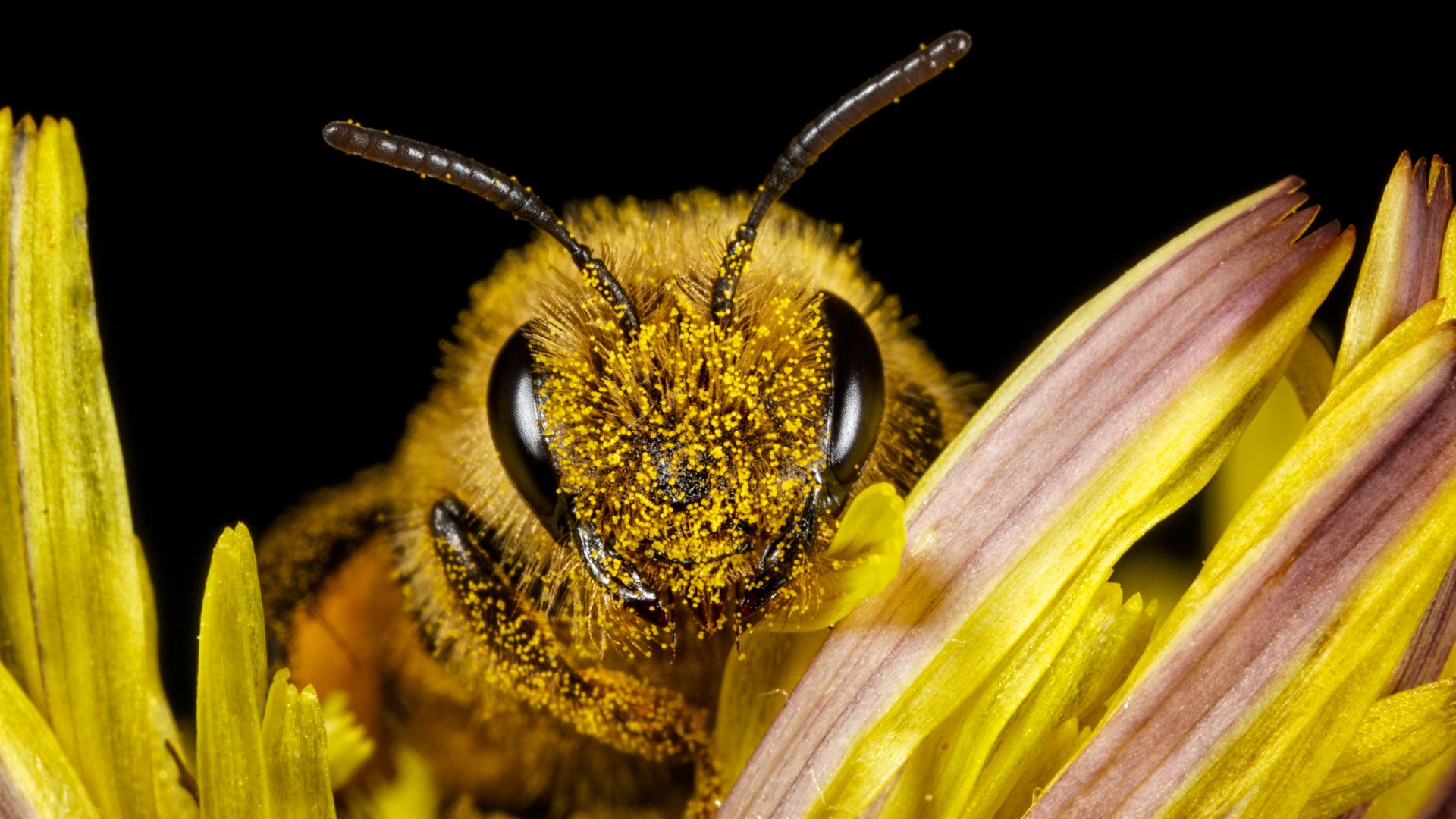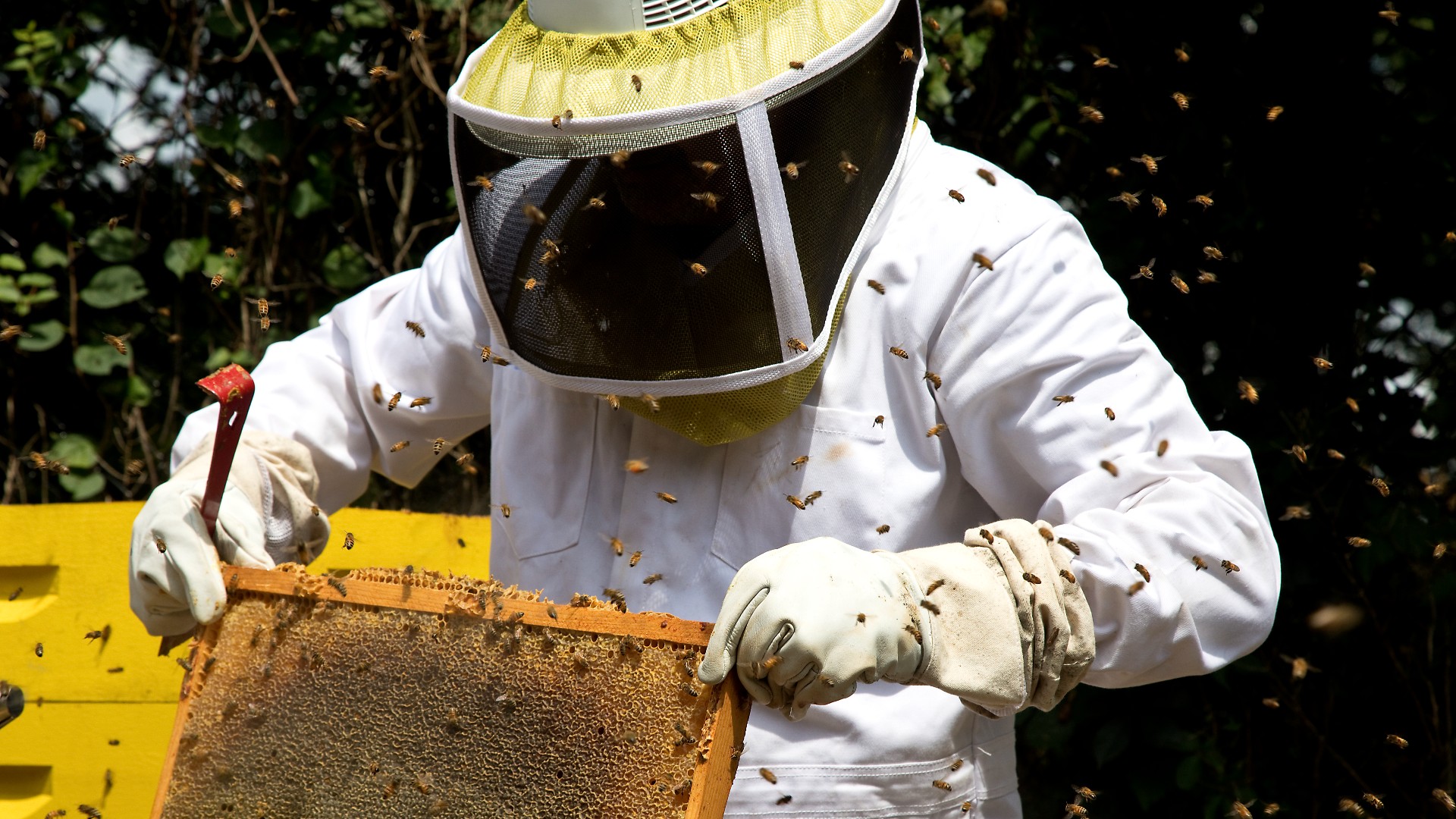
Do bees really die if they sting you?
Do all of the roughly 20,000 species of bee even have stingers?

It's an oft-spouted legend: If a bee stings you, it will die as a result. But is this tale, introduced to most of us in childhood and something many of us have recounted at one time or another, really true?
In a word, no. While some bees undoubtedly do die, others don't.
Not all bee species are even capable of stinging.
"There are an estimated 20,000 species of bees across the globe, and not all of them sting," Allyson Ray, a doctoral student of molecular cellular and integrative biosciences at Penn State, told Live Science in an email.
Related: How do mosquitoes sniff out humans to bite?
"There is a group of bees called the 'stingless bees' (tribe Meliponini) as well as the 'mining bees' (family Andrenidae), which do have stingers, but are so reduced as to be mostly ineffective."
There are more than 500 species of stingless bees, found mainly in the tropics. Rather than stinging, they bite, "and frequently have elaborate nest entrances to deter invaders," said Nicholas Naeger, a molecular biologist at Washington State University, who has been studying bees for over two decades.
Sign up for the Live Science daily newsletter now
Get the world’s most fascinating discoveries delivered straight to your inbox.
But what about those bees that do sting? What enables some to survive after they unleash their defensive weapon, and what causes others to perish?
"Honeybees will most often die as a consequence of stinging [humans or other mammals]," Ray said. "This is due to the anatomy of their stinger. It is barbed, which catches within the skin, allowing the stinger to remain in place and continue to pump venom into the unfortunate sting recipient."

Honeybees — of which there are around 10 species, according to Naeger — do not tend to die when stinging other insects or spiders, which tends to happen only if the bee thinks its hive is being invaded. This is because the stinger is generally able to pierce an insect's relatively thin exoskeleton and can be extracted without incurring damage. (This isn't the case with Asian giant hornets (Vespa mandarinia), colloquially known as murder hornets, whose thick outer skin shields them from Japanese honeybees' (Apis cerana japonica) stings; instead, these honeybees swarm an invading Asian giant hornet, using the heat generated from fluttering their wings to "slow cook" their rival.)
Human skin, however, is much thicker than most insects' exoskeletons, meaning "the stingers become lodged," Ray said.
"When the bee flies away after stinging a person, the stinger remains, and the organs of the gut are pulled and detached, effectively disemboweling the individual," Ray explained. The bee, now with a hole in its abdomen "might live for several hours after stinging, but eventually it will succumb to fluid loss and internal organ failure," Naeger added.
Naeger once carried out research to confirm that honeybees — which are the most common bee species worldwide, according to MyBeeLine, a network for beekeepers and bee enthusiasts — are incapable of surviving after stinging a human-like target.
"I marked and returned over 200 bees that had stung [the target], and I never witnessed a single case of a bee being alive the following morning," he said. "The act truly is deadly."
Other bees, however, are able to survive after stinging a human, as they have different stingers to honeybees. Bumblebees have a "smooth stinger, and are therefore able to sting multiple times without dying," Ray said.
Other flying stinging insects, such as hornets and wasps, have a similarly smooth stinger, which enables them to attack a target multiple times without dying.
Related: Why don't poisonous animals die from their own toxins?
Why do bees sting?
With that in mind, what encourages honeybees to go on the offensive? Are they naturally aggressive creatures, or are they somewhat misunderstood?
"Honeybees, like most bees, are timid when they are away from their hive and have nothing to protect," Naeger said. "The only two significant ways to get a bee to sting you is to provoke the sting by grabbing or squishing [the bee] so it does not have the option to flee, or by going too near its home nest."
Rather, the bee's reputation as a combative insect has potentially been sullied by another winged stinger.
"A significant number of insect stings that are blamed on bees are actually committed by wasps, which tend to be bolder and more aggressive than bees," Naeger noted.

It is also worth noting that not all members of the "stinging" bee species actually have the ability to sting. "Any stinging bee is going to be female, as the stinger is actually a modified ovipositor," or a tubular organ via which a female insect deposits its eggs, Ray added.
Female bees tend to massively outnumber their male counterparts. According to a 2019 study published in the journal PLOS One, the average bee population has a female-to-male ratio of around 5 to 1.
And female bees are very happy to fight as a team when necessary.
If any perceived threat is considered too large for a solitary female bee to manage on her own, she is able to "call on her sisters for help," said Dr. Marley Iredale, a veterinarian at the University of Florida.
"She does this by releasing an alarm pheromone that her sisters recognize as a cue to defend the colony," Iredale told Live Science in an email. "This pheromone in honeybees actually includes the molecule that makes bananas smell ripe (isoamyl acetate), so an upset honeybee colony can smell strongly of bananas."
To bee, or not to bee
Given the dire fate that awaits a honeybee once it stings a human or other thick-skinned mammal, is there any chance the bee is aware of what the outcome will be? Are they cognisant of the fact that once their stinger pierces the skin, they are essentially signing their own death certificate?
"I do not think that honeybees understand that they are going to die when they sting, but under the right circumstances, they are very willing to give up their lives for defense of the colony," Naeger said. "When it comes to protecting the colony or making sure that genes are passed to the next generation, the instincts that drive those behaviors clearly outweigh any concern that the bees might have for their individual selves."
This is something both Iredale and Ray support.
"Whether they are 'aware' of the influences driving their decision-making and the personal consequences of their stinging behavior is not obvious," Ray said.
Iredale agreed that bees are unlikely to be aware of the consequences of stinging a human. "I think knowledge of one's mortality might be a burden that only highly derived organisms, such as primates, experience," Iredale said. "But, if the bees are aware, I genuinely think they would sacrifice themselves willingly for the good of the colony."
Originally published on Live Science.

Joe Phelan is a journalist based in London. His work has appeared in VICE, National Geographic, World Soccer and The Blizzard, and has been a guest on Times Radio. He is drawn to the weird, wonderful and under examined, as well as anything related to life in the Arctic Circle. He holds a bachelor's degree in journalism from the University of Chester.









